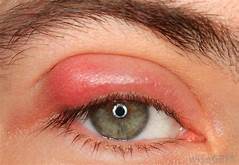5 IMPORTANT SIGNS FROM YOUR BODY THAT MAY NOT BE RELATED TO AGING
5 Important signs that may not be related to aging!

Our body is miraculous at sending messages. Sometimes these messages are a whisper and sometimes our body screams with more debilitating symptoms. With the New Year we are all focused on change but it is important to listen and investigate signs and symptoms from your body.
1. THINING HAIR is one of the most common complaints that both men and women report. While this can be a normal part of aging it can also be a sign from your body that you may have an iron deficiency anemia or an under active thyroid.
TALK TO YOUR HEALTH CARE PROVIDER for further testing of your iron and thyroid levels. Discuss any other symptoms that you may be having such as fatigue, insomnia or a racing heartbeat.
NUTRIENT ADVICE: If you are iron deficient ensure that you get protein at every meal (20 grams of protein per meal is a good amount for most people). You can incorporate a protein shake into your favourite meal or try adding legumes to your salads.
2. SMALL YELLOW BUMPS ON YOUR EYELIDS are commonly thought of as simple age related changes to your skin, which they can be. Also known as xanthelasmata these soft bumps can also indicate heart disease and excess cholesterol. A Danish Study conducted in 2011 found that 4% of the participants (out of 13,000) had xanthelasmata. These people were 70% more likely to develop high cholesterol levels and 50% more likely to have a heart attack.
TALK TO YOUR HEALTH CARE PROVIDER if you notice these small bumps on your eyelids and they can test your cholesterol levels and further discuss any relevant family history of heart disease.
NUTRIENT ADVICE: focus on healthy fats that promote healthy cholesterol levels (these are food that increase your HDL good cholesterol and decrease your LDL bad cholesterol). Fresh water fish or fish oil supplements are excellent. Cook with oils such as grape seed oil that can withstand heat, heated olive oil can actually increase your LDL cholesterol.
3. INCREASED URINARY FREQUENCY is very commonly associated as being a normal part of aging, especially in women who have had children. This can be an indicator of diabetes or a chronic Urinary Tract Infection (UTI). Many post-menopausal women can have asymptomatic UTI’s that manifest only as increased urinary frequency.
TALK TO YOUR HEALTH CARE PROVIDER: they can test for sugars in your urine and can do further testing for potential bacteria in your urinary tract.
NUTRIENT ADVICE: take a probiotic daily. REJEUVENATE Collagen protein contains a shelf stable probiotic within the powder or your local health food store will have several options to choose from. Look for a mixed acidophilus blend with several millions of bacteria per pill. Drink 250ml of sugar free cranberry juice daily.
4. CHRONIC RED EYES can be caused by something as simple as staring at your screen too long but it can also be a sign from your body that you are inflamed. This can be seen is some cases of osteo or rheumatoid arthritis. Episcleritis (redness caused by inflammation) occurs in up to 20% of people suffering from arthritis.
TALK TO YOUR HEALTH CARE PROVIDER: you can undergo blood and physical assessments to assess if you have arthritis. Your medical provider may assess your inflammatory markers via blood work or they may order medical imaging.
NUTRIENT ADVICE: cut the sugars out. Focus on foods that decrease inflammation such as greens and a low grain diet. Try adding liquid Chlorophyll to your water and take a daily antioxidant such as Age Quencher® AGELESS to help combat oxidative stress in your body.
5. TIRED PUFFY LOOKING EYES can make you look and feel aged. This can be a sign of chronic allergies causing inflammation in the fine vessels that surround the eyes. The dilation of these vessels can create a dark bluish purple hue under the eyes.
TALK TO YOUR HEALTH CARE PROVIDER: if your eyes are always tired and puffy investigate if you may be suffering form unknown food or environmental allergies. They can look at your histamine levels and discuss if food sensitivity testing is right for you.
NUTRIENT ADVICE: stay hydrated and focus on foods that are high in minerals such as sea vegetables. Don’t be afraid to add a small pinch of pink Himalayan salts to your food.